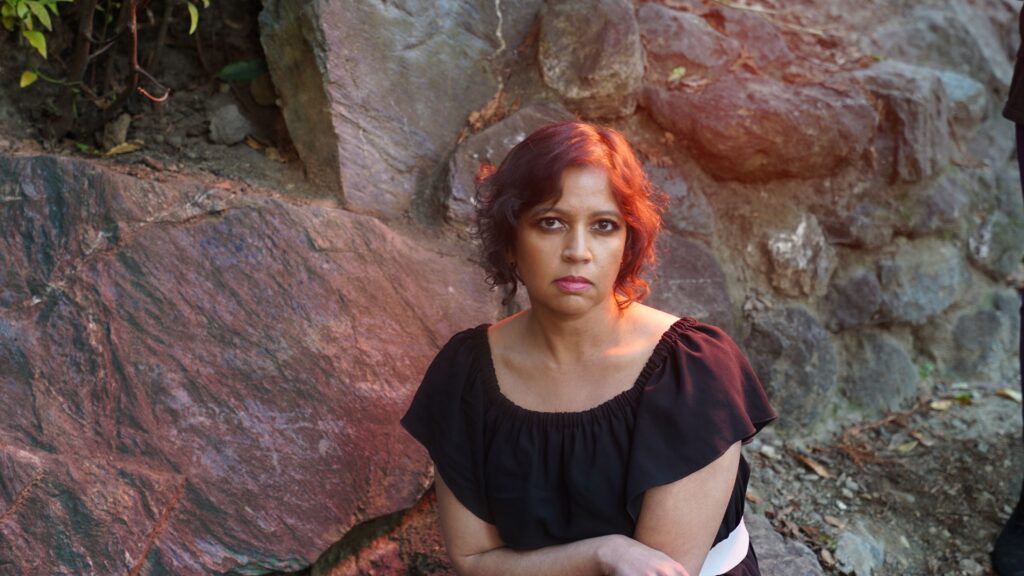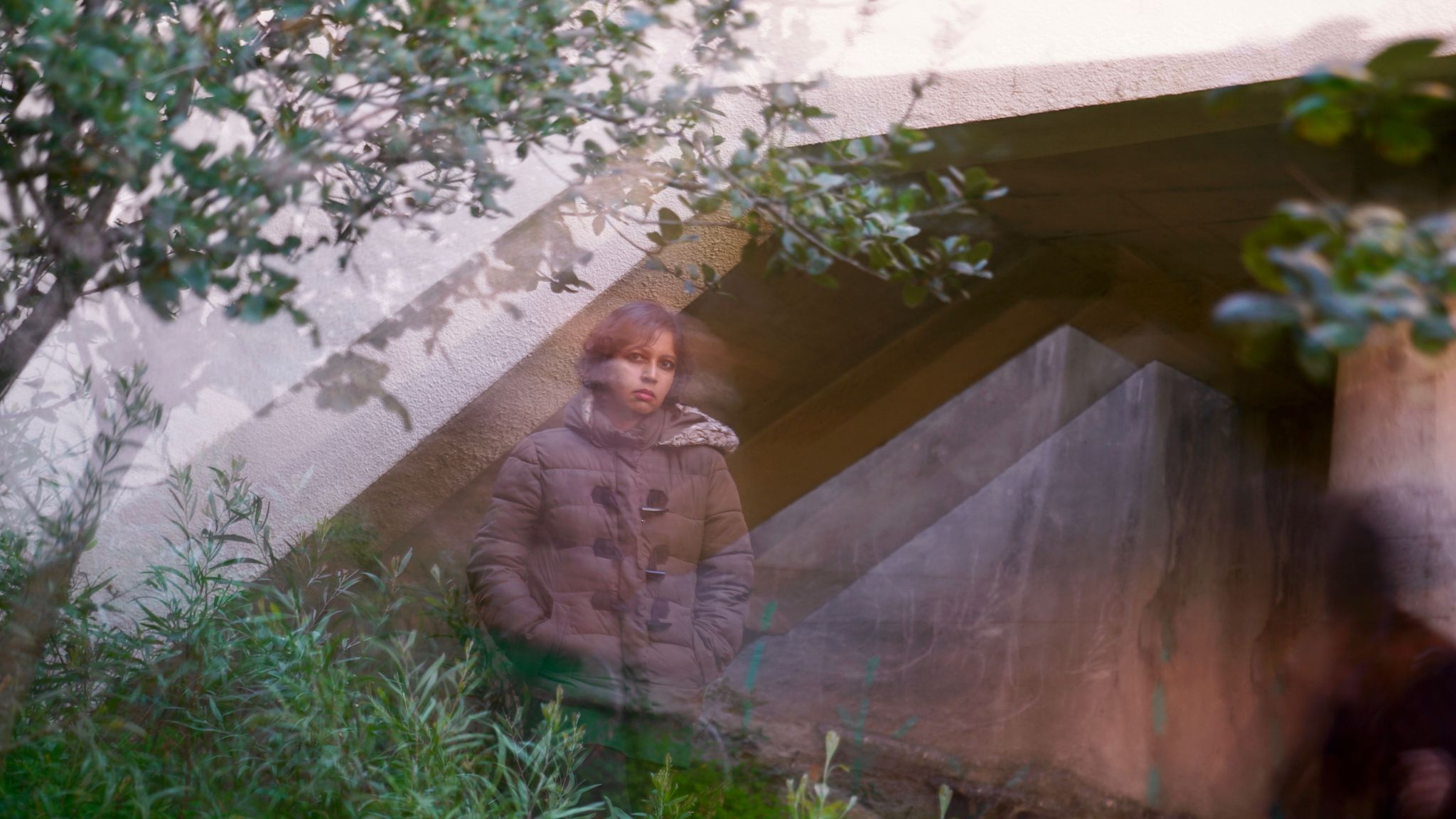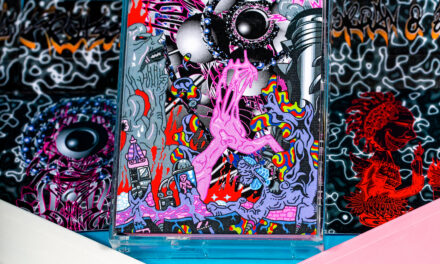“We as a culture really underestimate middle-aged woman,” shoegaze musician Sheetal Singh, aka Forest Bees, tells me. “We’re allowed to be productive in terms of being mothers in a very traditional sense. But then we’re erased. People who are out of their 20s are suddenly no longer valid as creators any more. And I think that’s bullshit.”
Singh’s new album, Forest Bees, is dreamy, lyrical album about motherhood, the toll of bullshit, and refusing to be erased. It’s Singh’s first solo record, and a return to music for her after a more than 15 year hiatus. In her twenties in the late 90s, Singh was the bassist for the almost-famous San Francisco shoegaze band the Stratford 4. But in 2004 Elektra records disappeared in a corporate merger, taking the Stratford 4’s still unreleased major label debut with it into limbo. Disheartened, the band came apart. “We all just kind of…well, I took a step away from music,” Singh says. “I went to graduate school, decided to focus on career and family, had a couple of kids.”
After a decade away from music, though, Singh says, “it just kind of came back a couple of years ago as a hunger, and I just really wanted to play music again. I wanted to write again; I wanted to perform.” She reached out to the rest of the Stratford 4, and they played a couple of reunion shows, but ultimately she decided she needed to set off in a different direction. So she taught herself to use beat-making software and started writing and recording her own material.
The album that resulted is strikingly different from the typically young, white, male shoegaze focus on abstractly oceanic longing and romance. Singh’s album track “Alone Together”, for example, has lyrics that could almost have dropped out of a classic country song. “I guess I knew we’d end up here/Disappointing friends/Disappointing jobs.”
The buzzing guitars and the echoing vocals, both genre staples, here tell a story not of young love, but of aging disappointment, isolation and resigned regret. “It’s about how this friend of mine stayed single while I went down the marriage and family route,” Singh told me. “But there is kind of a loneliness in where we both ended up. Andit just struck me that you know, it’s a common condition.” At the end of the track she sighs, “Now I know nobody can save me/ Now I know we’re alone.”
“Off Color” is an even more ambitious song. The music incorporates Bollywood rhythms and melodic elements. Those hark back to Singh’s childhood in Buffalo, where her mother would sing Hindi film music all the time. The lyrics though are addressed not to her mom, but to her daughter, who is struggling with self-image in a world that does not see brown girls as beautiful, or valuable.
Hey girl looking at the
Bright clean pretty things
Sunshine sparkles on their
Pale white lilly skin
You know you stand apart
You feel it in your bones
Where darkness signifies
Never feeling home

Singh’s song is about herself too. As an indie rock performer, she says, she rarely saw other South Asian women in the scene. “ Andrea [Caturegli, the Stratford 4’s drummer] and I would often be the only women on a bill of three bands a night every night, and people would treat us like we were idiots,” she told me. She constantly felt like an imposter.
Singh says it’s painful to see her daughter experience the same kind of self-doubt and subtle racism she had to deal with. But the song, and those big Bollywood beats, are also full of hope. Singh is able to love her daughter in a way, perhaps, she couldn’t love herself, and that love is a resource for her daughter too. “Free fall/I hear the rasa”, she sings, referring to a Hindi term for musical color and emotion. “We might be off color/But I’m feeling all right.”
The most painful, and the most lovely song on the album is “Hollow Bones.” Singh wrote it nine years ago or so, right after the birth of her second daughter. It’s about postpartum depression, and it’s beat is a funereal thing, slow and dragging. Singh’s ethereal vocals come out of her with a ghostly effort, like she’s buckling and evaporating at once.
Hollow bones
Crack and sigh
When I hear my baby cry
I’m being eaten up alive
By her
I can see in the break of dawn
That my best days have gone
The song is about losing oneself in motherhood, or about how love eats women and turns them into mothers. But while Singh sings about being drained, the song itself is a quietly defiant act of creation. “It just came to me one evening, almost fully formed as I was sitting there trying to get her to go to sleep. It was something that I felt like I needed to come out,” she said. “And it was almost like another child being born.” Being a mother made Singh feel like she had lost the ability to create. But it also made her a creator.
Pop music loves youth and sex and desire and big emotions, and those are all great. Middle-aged is also “abuzz with possibility,” though, as Singh puts it in her song “Observer of Geography.” “One of my messages is that, yeah, it gets messy as we get older,” Singh told me. “And nothing’s really black and white anymore and things get complicated. But there’s a beauty in that too.” Forest Bees proves that shoegaze is best when it gets old enough to gaze at other things.





